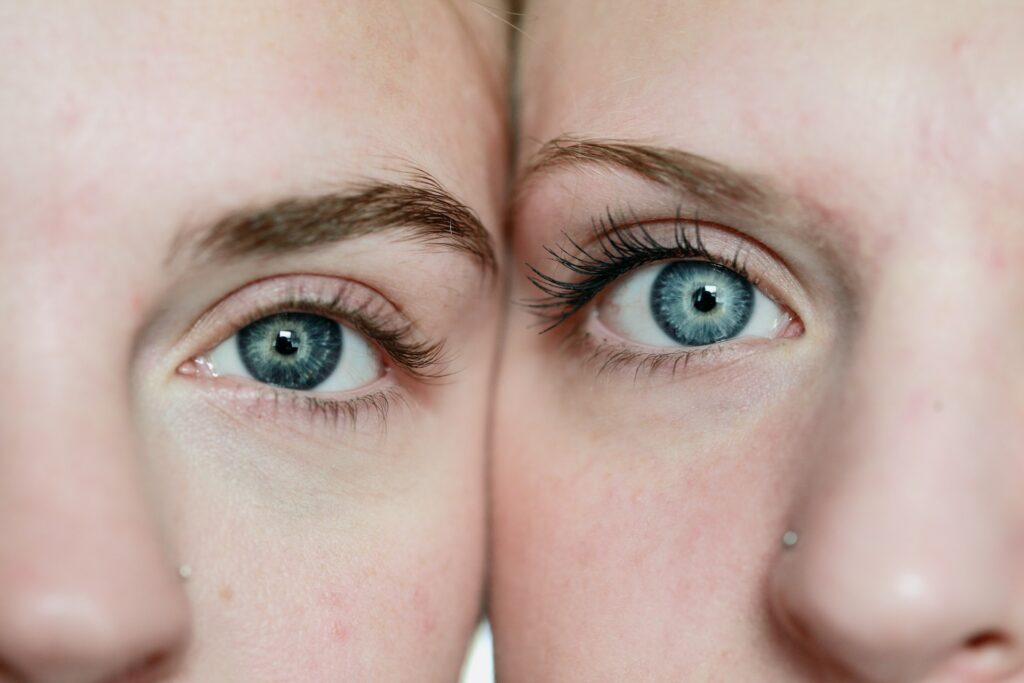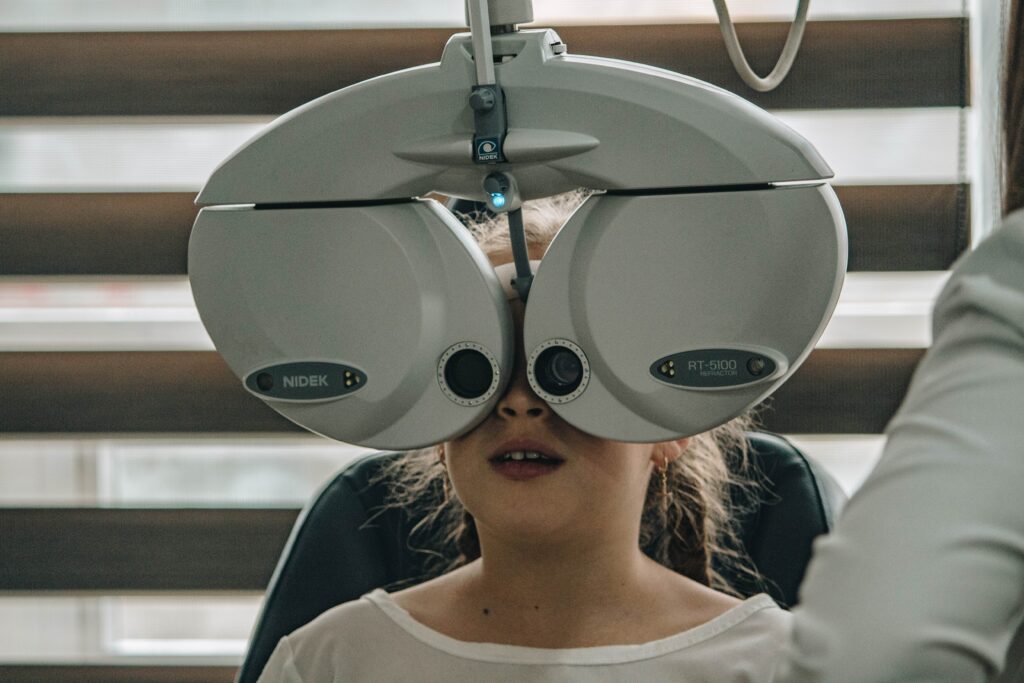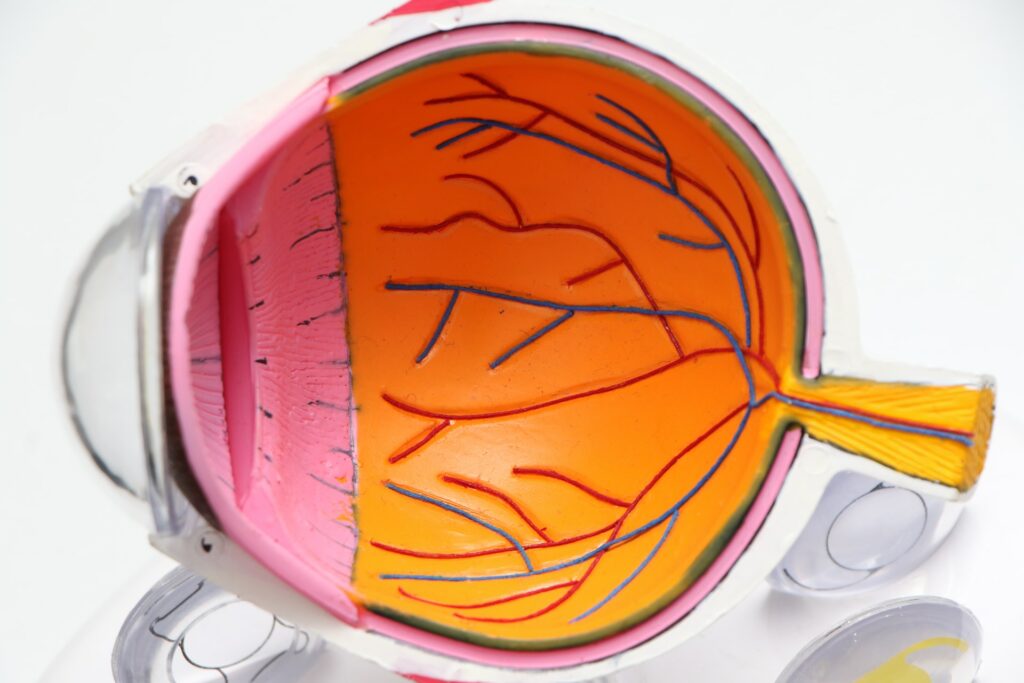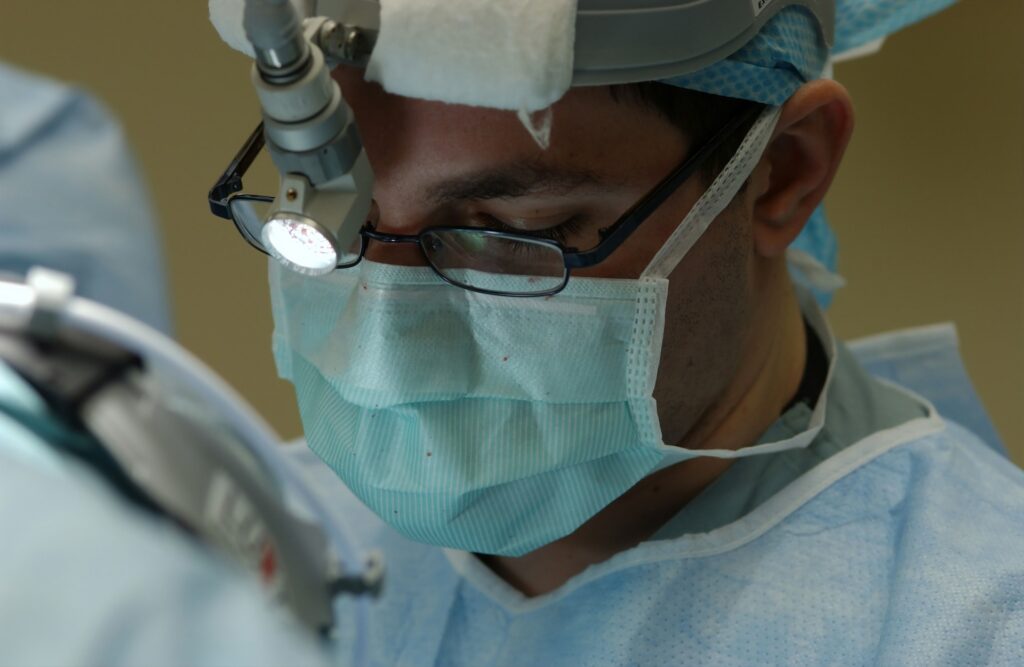Who is suitable for vision correction surgery?
In modern society, vision problems have become increasingly common. Whether due to excessive screen time, prolonged close-up reading, or simply the natural aging process, more and more people are relying on eyeglasses or contact lenses to correct their vision issues. However, with advancements in medical technology, vision correction surgery has become an increasingly popular option, allowing individuals to bid farewell to cumbersome glasses and contact lenses and enjoy a more liberated field of vision.
Vision correction surgery is an exciting technology that can significantly improve vision problems such as nearsightedness and farsightedness. However, it is not suitable for everyone, so understanding whether you are a candidate for this surgery is crucial. This article will provide you with a detailed insight into who should consider vision correction surgery and the factors to consider before making a decision. Whether you are a long-time glasses wearer or simply someone interested in addressing vision issues, our goal is to provide you with clear information to make an informed decision and gain a clearer perspective and increased confidence in life.

Vision correction surgery is a medical procedure that aims to improve vision problems such as nearsightedness, farsightedness, and astigmatism by making subtle alterations to the cornea of the eye. The fundamental principle of this surgery involves reshaping or adjusting the curvature of the cornea to ensure that light correctly focuses on the retina within the eye, resulting in improved clarity of vision.
Here are several common methods of vision correction surgery, each utilizing different techniques to achieve the same goal:
- Laser-Assisted In Situ Keratomileusis (LASIK): LASIK surgery is one of the most common forms of vision correction. In this procedure, a laser is used to create a tiny flap in the cornea. The underlying corneal layer is then reshaped using laser ablation, and the corneal flap is repositioned. LASIK aims to correct nearsightedness, farsightedness, or astigmatism.
- Implantable Collamer Lens (ICL): ICL is an option for individuals who are not suitable candidates for LASIK. It involves the implantation of an additional transparent lens within the eye, which works in conjunction with the natural lens to improve vision. This extra lens can be customized to address an individual’s specific vision issues, making it suitable for both nearsightedness and farsightedness correction.
- Photorefractive Keratectomy (PRK): PRK is another corneal surface ablation surgery similar to LASIK but without the creation of a corneal flap. In PRK, the outer layer of cells on the cornea is removed, and then a laser is used to reshape the cornea. PRK is typically used for correcting mild to moderate nearsightedness.
- Cataract Surgery: For patients with cataracts, cataract surgery can simultaneously correct vision problems. In this procedure, the cloudy natural lens is removed and replaced with an artificial lens, which can correct nearsightedness or farsightedness.
Regardless of the method chosen, the goal of vision correction surgery is to improve the curvature of the cornea or adjust the lens so that light can correctly focus on the retina, resulting in clearer vision. These surgeries are typically performed after a thorough preoperative examination and assessment to ensure the patient’s eyes are suitable for the procedure.

People Who Are Suitable for Vision Correction Surgery
Vision correction surgery is an excellent technology for improving various vision problems, but it’s not suitable for everyone. Here are some groups of people who are suitable candidates for vision correction surgery:
- Nearsighted, Farsighted, or Astigmatic Individuals: Vision correction surgery is suitable for individuals with nearsightedness (difficulty seeing distant objects clearly), farsightedness (difficulty seeing nearby objects clearly), and astigmatism (distorted or blurred vision). These surgeries can significantly improve their vision and reduce dependence on glasses or contact lenses.
- Stable Prescription: Suitable candidates for vision correction surgery typically need to have a stable prescription, meaning that their degree of nearsightedness, farsightedness, or astigmatism has not significantly changed. If the prescription is still changing, the surgery may not be appropriate because post-surgery changes are unpredictable.
- Healthy Eyes: Candidates’ eyes must be in good health without corneal diseases, eyelid issues, or other eye conditions. Some systemic health issues, such as diabetes, may also make some individuals unsuitable for vision correction surgery.
- Age Requirements: Most vision correction surgeries are suitable for adults aged 18 and above because younger individuals’ eyes may still be undergoing developmental changes. Older individuals may require specific surgery types to meet their needs.
- Suitable Prescription Range: Different surgical methods are suitable for different prescription ranges. LASIK is typically suitable for mild to moderate nearsightedness or farsightedness, while methods like ICL can address a wider range of prescriptions.
- Lifestyle and Expectations: Suitable candidates for vision correction surgery should have clear expectations and a compatible lifestyle. For example, if you’re a professional photographer or require fine close-up work, you might lean towards LASIK as it usually performs well for both farsightedness and nearsightedness. However, if your job involves repetitive eye strain, you might need to consider other surgical methods to reduce risks.
- No Severe Eye Conditions: Candidates should not have severe eye conditions like corneal diseases (e.g., thin or irregular corneas), glaucoma, or cataracts. These conditions may require other types of eye surgery or treatment.
- No Specific Medical Conditions: Certain medical conditions, such as pregnancy or breastfeeding, may not be suitable for vision correction surgery. Additionally, if you are on specific types of medications or have autoimmune diseases, extra considerations may be necessary.
- Comprehensive Assessment: Before undergoing vision correction surgery, you should receive a comprehensive eye assessment, including eye examinations, corneal topography measurements, and intraocular pressure measurements, to ensure the safety and suitability of the surgery.
It’s crucial to consult with an eye care specialist who can assess your specific situation and guide you toward the most appropriate vision correction option if you are considering such surgery.

Conditions Unsuitable for Vision Correction Surgery
While vision correction surgery is highly effective in many cases, it’s not suitable for everyone. Here are some conditions in which vision correction surgery may not be appropriate:
- Inappropriate Age: Vision correction surgery is generally not recommended for very young individuals because their eyes may still be developing, and the surgical outcomes may be unstable. In most cases, doctors advise waiting until at least 18 years of age to consider surgery.
- Existing Eye Conditions: If you have certain eye conditions such as corneal diseases (e.g., thin or irregular corneas), glaucoma, cataracts, or other eye problems, you may not be a suitable candidate for vision correction surgery. These conditions require specific treatments, and surgery may increase the risk of complications.
- Pregnancy or Nursing: Women who are pregnant or nursing are typically not recommended for vision correction surgery because hormonal changes during this period can affect corneal shape and surgery outcomes. It’s best to consider surgery after pregnancy and nursing.
- Severe Dry Eye Syndrome: Severe dry eye syndrome is a common eye issue, but if you suffer from severe dry eyes, vision correction surgery may lead to eye discomfort and pain. Before surgery, your eye care professional will assess whether your eyes are adequately moist for the procedure.
- Specific Medical Conditions: Certain medical conditions, such as autoimmune diseases, severe cardiovascular issues, diabetes, and others, may increase the risk of undergoing vision correction surgery. In such cases, alternative methods may be recommended to address vision problems.
- High Degrees of Nearsightedness: For individuals with extremely high levels of nearsightedness, their corneas may be too thin for vision correction surgery. Doctors will evaluate corneal thickness and eye health to determine suitability for the surgery.
- Unsuitable Health Conditions: Some individuals with chronic health issues, such as severe autoimmune disorders, compromised immune systems, or those taking specific medications, may not be suitable for vision correction surgery. These factors could increase the risk of surgical complications, so careful assessment of individual health status is necessary before surgery.
- Unrealistic Expectations: Vision correction surgery may not always achieve perfect vision, especially for those with high nearsightedness or presbyopia (difficulty focusing on near objects with age). If your expectations are unrealistic, it could lead to disappointment. It’s essential to have a detailed discussion with your doctor before deciding on surgery to understand the potential post-surgery vision outcomes and maintain realistic expectations.
- Concerns About Surgical Risks: All surgeries carry inherent risks, and vision correction surgery is no exception. Some people may be unwilling to undergo surgery due to concerns or fears about the surgical process. Before making a decision, it’s crucial to carefully consider the surgical risks and have thorough communication with the doctor to address all concerns.
Please note that the above conditions are general guidelines, and specific situations may vary due to individual differences and different surgical methods. Before deciding on whether to undergo vision correction surgery, a detailed pre-operative assessment and consultation are essential. Vision correction surgery is a fantastic technology, but it’s not suitable for everyone. The best decision is to have a detailed discussion with a qualified eye care professional to create the optimal vision correction plan based on your individual circumstances and needs. This way, you can achieve clearer vision, improve your quality of life, and ensure the safety and success of the surgery.

Pre-Assessment and Surgical Selection
Before considering vision correction surgery, several crucial steps and decisions require careful pre-assessment. These assessments are essential in determining the most suitable type and method of surgery for you.
- Eye Care Professional Assessment: Firstly, you need to schedule an eye care professional assessment and have a face-to-face consultation with a qualified eye doctor. The doctor will conduct a detailed examination of your eyes, measure your vision, assess the curvature and thickness of your corneas, and check the overall health of your eyes. The purpose of this step is to determine whether you meet the basic criteria for vision correction surgery. The doctor will also inquire about your medical history, medications you are taking, and any history of eye conditions.
- Selecting the Type of Surgery: Based on the results of the eye care professional assessment, the doctor will discuss viable types of surgery with you. Common vision correction surgeries include LASIK (Laser-Assisted In Situ Keratomileusis), PRK (Photorefractive Keratectomy), and lens replacement procedures. The doctor will explain the principles, advantages, and limitations of each surgery and recommend the most suitable type based on your eye characteristics and individual needs.
- Discussing Expectations and Risks: Before selecting the surgery type, the doctor will discuss the expected outcomes of the surgery and potential risks with you. You need to have a clear understanding of the possible post-surgery vision conditions and any complications or risks involved. The doctor will answer your questions, help you set realistic expectations, and ensure that you make an informed decision.
- Personalized Surgical Plan: Once the surgery type is determined, the doctor will create a personalized surgical plan for you. This includes scheduling the surgery date, providing pre-operative and post-operative instructions, discussing surgical costs, and outlining the required recovery time after surgery. You will also be informed whether you need to discontinue wearing contact lenses or glasses and for how long.
- Pre-Surgery Preparation: Before the surgery, you will need to follow the doctor’s recommendations, including discontinuing contact lens wear for a specified period, avoiding the use of cosmetics and skincare products, and refraining from certain medications. These preparatory steps are crucial for the success of the surgery and post-operative recovery.
After completing the pre-assessment and selecting the surgery type, you will have a better understanding of vision correction surgery and be well-prepared for the procedure. Please remember that choosing to undergo surgery is a significant decision that requires collaboration with a professional medical practitioner to ensure safe and effective vision correction.

The risks and benefits of vision correction surgery are important considerations, as they help patients weigh whether to undergo the procedure. Here’s more detailed information on these risks and benefits in British English:
Benefits
- Improved Vision: One of the most significant advantages is that vision correction surgery can markedly improve nearsightedness, farsightedness, or astigmatism, enabling individuals to see the world more clearly in their day-to-day lives.
- Enhanced Quality of Life: By reducing dependence on glasses or contact lenses, vision correction surgery can elevate one’s quality of life. People can engage in various activities freely, such as outdoor sports or specific professions, without worrying about the inconvenience of eyeglasses.
- Rapid Postoperative Recovery: For the majority of patients, vision recovery after surgery is swift. Typically, individuals can see clearly within a few days after the surgery without the need for hospitalization.
- Long-lasting Effects: The effects of vision correction surgery are typically long-lasting, and most individuals can enjoy clear vision for many years, reducing the need for frequent eyeglass or contact lens replacements.
Risks
- Complications: Although the success rate of vision correction surgery is high, there are still potential complications, such as dry eye syndrome, photosensitivity, postoperative infections, etc. These risks are relatively low but should be thoroughly discussed with your doctor before the surgery.
- Postoperative Discomfort: In the days following surgery, some patients may experience visual discomfort, dryness, or excessive tearing. However, these symptoms are usually temporary and tend to diminish over time.
- Inability to Completely Eliminate Dependency: While vision correction surgery can significantly improve vision, not everyone can completely discard their eyeglasses or contact lenses. In some cases, the surgery may only reduce dependency rather than eliminate it.
How to Balance Risks and Benefits
When considering vision correction surgery, here are some key points to help you make an informed decision:
- Consult a Professional Doctor: Seek out an experienced and certified ophthalmologist and engage in candid discussions with them to determine if you are a suitable candidate for the surgery and which specific procedure is best for you.
- Consider Lifestyle: Take into account your personal lifestyle and activity level. If your life demands clear vision for activities such as outdoor sports or specific occupations, vision correction surgery may be more appealing to you.
- Understand Surgical Types: Familiarize yourself with different types of vision correction surgery and their respective risks and benefits. Collaborate with your doctor to decide which surgery suits you best.
- Assess Risk Tolerance: Reflect on your personal risk tolerance. If you have concerns or fears about the surgery’s risks, you may need more time to weigh the pros and cons or explore other vision correction options.
- Think Long-term Impact: Given that the effects of vision correction surgery are typically long-term, consider how the surgery will impact your future life.
Ultimately, the decision to undergo vision correction surgery is a personalized one and should be based on comprehensive information and consideration. Vision correction surgery can be an effective means of improving vision, but it should only be pursued when you feel adequately prepared.

Postoperative Care and Considerations
After vision correction surgery, proper care and adherence to guidelines are crucial for recovery and a successful outcome. Here are some key care and considerations:
- Rest and Recovery: Rest is essential after surgery. Your eyes need time to heal, so avoid strenuous physical activities and excessive eye strain for the first day or two after the procedure. Doctors typically advise against driving and operating machinery during this period.
- Use Protective and Sunglasses: Wear protective eyewear to shield your eyes from external contaminants and irritants after surgery. This eyewear also helps prevent you from rubbing your eyes. When outdoors, use both protective eyewear and sunglasses to safeguard your eyes from UV radiation and windblown debris.
- Follow Eye Drop Schedule: Your doctor will prescribe eye drops to maintain eye moisture and alleviate discomfort. Ensure you use the eye drops as directed by your doctor and strictly adhere to the dosing schedule.
- Avoid Eye Rubbing: Refrain from rubbing or touching your eyes for several weeks after surgery to prevent infection or damage.
- Avoid Irritants: Stay away from irritating environments such as smoke, dust, bright lights, and chemicals for a few weeks post-surgery.
- Avoid Swimming and Hot Baths: For several weeks following surgery, it’s advisable to avoid immersing your eyes in pools, hot tubs, or hot baths, as these environments can increase the risk of infection.
- Maintain Hygiene: Handwashing is crucial. Always wash your hands thoroughly before touching your eyes or using eye drops to reduce the risk of infection.
- Rest Your Eyes: For the first day or two after surgery, avoid intense reading, writing, or prolonged use of electronic devices to reduce eye strain.
- Consult Your Doctor Promptly: If you experience any unusual symptoms after surgery, such as excessive pain, persistent dryness, decreased vision, or any discomfort, do not hesitate to consult your doctor immediately.
- Adjust Your Lifestyle: It may take some time to adapt to your new vision. Consider gradually returning to your regular activities and work to prevent fatigue and eye strain.
- Follow Medical Advice: Adhere to your doctor’s recommendations and follow-up appointments for regular check-ups. Your doctor will assess the healing progress of your eyes and ensure everything is on track.
Adhering to these care and consideration guidelines will contribute to a smooth recovery after surgery and maximize the success rate of vision correction procedures. If you encounter any discomfort or issues after surgery, be sure to contact your doctor promptly.

Summary
Vision correction surgery is one of the remarkable achievements of modern medicine, improving the lives of millions by liberating them from the reliance on glasses or contact lenses. However, deciding whether to undergo this procedure is a significant choice that requires careful consideration. In this article, we aimed to provide you with detailed information about the fundamentals of vision correction surgery, the suitable and unsuitable candidates, pre-operative assessments and choices, risks and benefits, and post-operative care.
Ultimately, the decision to opt for vision correction surgery depends on your individual needs and expectations. When contemplating surgery, always consult with a professional eye doctor who can offer the best advice based on your circumstances and ensure you make an informed decision.
Regardless of the method you choose to enhance your vision, we hope you enjoy a clearer, brighter world and the freedom from the inconveniences of glasses or contact lenses. Maintaining eye health is a crucial step toward pursuing a high-quality life. Wishing you healthy eyes and a bright future!



